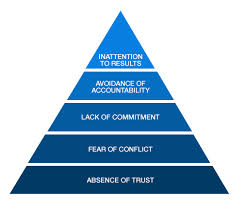 One aspect of marriage that seems to get overlooked so many times is Teamwork. The Bible says that “two become one” yet much of the time we function solo. We act based on our own feelings and desires without regard to our spouse’s feelings and desires. At this moment we are not being “one” but rather two separate individuals. The goal of marriage is for the two people to function as one unit throughout life. As I played basketball in high school, I had coaches that would always tell us that we had to play as a team. They would say, “you win as a team and you lose as a team.” Even if one player had great games or horrible games, it still would be the team won or lost. Marriage is the same way.
One aspect of marriage that seems to get overlooked so many times is Teamwork. The Bible says that “two become one” yet much of the time we function solo. We act based on our own feelings and desires without regard to our spouse’s feelings and desires. At this moment we are not being “one” but rather two separate individuals. The goal of marriage is for the two people to function as one unit throughout life. As I played basketball in high school, I had coaches that would always tell us that we had to play as a team. They would say, “you win as a team and you lose as a team.” Even if one player had great games or horrible games, it still would be the team won or lost. Marriage is the same way.
I read The Five Dysfunctions of a Team, by Patrick Lencioni, a couple of weeks ago for an organization of which I am a part. As I read the book, I began to think about how this relates to the team of marriage. What makes marriages so dysfunctional and how do these five dysfunctions relate?
Dysfunction #1: Absence of Trust. So many times the couples that come into my office just do not trust the other person. Sometimes this trust has been broken overtly by adultery, but many times it has been broken by not following through on promises. Trust has to be part of the foundation if the marriage is going to survive the turbulent times in life. Trust is never just given; trust has to be earned and re-earned. For a marriage to be built on trust, both spouses have to be trustworthy.
Dysfunction #2: Fear of Conflict. When conflict arises in marriage, one spouse might want peace at all costs and therefore will avoid conflict. I actually had a man tell me that in sixty years of marriage he and his wife never fought. He just always gave in to what she wanted. Conflict in marriage is inevitable. We have to be willing to confront those conflict issues and work on resolving them. Without facing the conflict issues, we actually only have an artificial harmony. We want true unity.
Dysfunction #3: Lack of Commitment. When we recite our vows on our wedding day, we say something like: “in sickness and in health, in good times and bad, till death do us part.” We make a lifelong commitment. Do we mean it? In our throw-away society, we think about our marriage just the same way. If things get too difficult, we think about “throwing away” our spouse and starting over by finding someone else. To follow through on the commitment of marriage takes hard work every time and it brings about fulfilling results every time.
Dysfunction #4: Avoidance of Accountability. This dysfunction coincides with #2, Fear of Conflict. Keeping our spouse accountable many times leads to conflict. If a man has been guilty of being dishonest, looking at porn, or even committing adultery, naturally he does not want his wife reminding him of his wrong doings and questioning what he is doing now. He might even go so far as accusing his wife of trying to be his mother. No woman wants to be compared to her mother-in-law, so this dysfunction can create a great deal of conflict. Accountability is necessary to rebuild trust. It is also necessary to accomplish the goal of the couple to thrive as a couple. Asking accountability questions, such as “where have you been?”, “what have you been doing?’, “have you started on that project yet?”, etc., is vital to keep the marriage moving in the right direction. As you ask the questions, you have to remember not to nag or badger your spouse. You are asking the questions to help move the marriage forward…not drag it down.
Dysfunction #5: Inattention to Results. The results of a marriage sometimes are difficult to quantify because they are more abstract than business results. Business results are based on customers, sales, and profits, along with other criteria that can be counted. Marriage results are based on fulfillment and satisfaction of both spouses, mental and physical health of children, and accomplishments that cannot easily be counted. Because of this difficulty, many couples really do not know what they are striving for in their marriage. One spouse might be selfish and only looking out for his own pleasure or his own fulfillment. He or she might think that selfishness is acceptable as long as he/she is happy. However, the “one” in marriage is both spouses functioning together to bring fulfillment to both, not just one. Pay attention to the results that you desire in your marriage.
Each one of these dysfunctions listed in Lencioni’s book, The Five Dysfunctions of a Team, can be applied to a marriage. How do they relate to your marriage? Which of the five do you think is most important to you and your mate?

After spending more than 25 years on church staffs, God has allowed me to take the experiences and knowledge that I gained to develop a Biblical Counseling ministry. The basis of this ministry is to allow God’s Word to shine on the main issues in peoples’ lives in order to bring His resolutions to problems.
Develop The Life and Marriage You Desire
Affiliated Links included in text.
